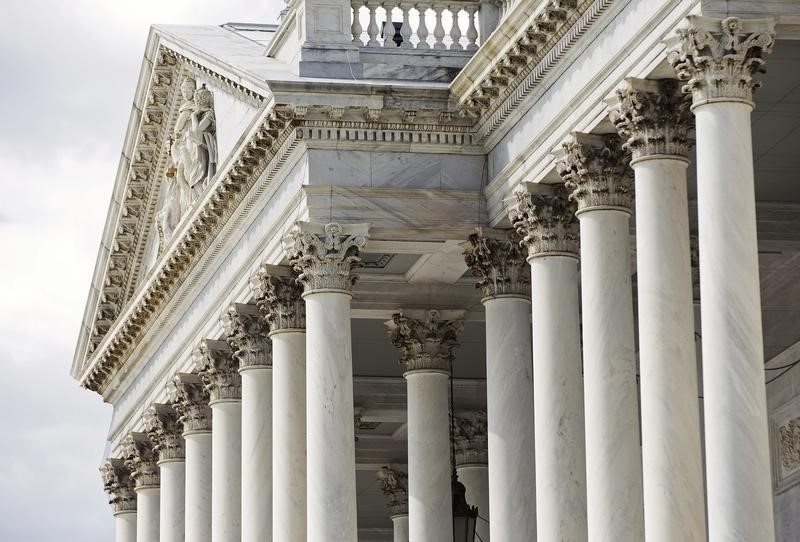By Richard Cowan
WASHINGTON (Reuters) - U.S. House Speaker John Boehner and other congressional leaders raced to finalize a sweeping two-year budget deal and an extension of the federal debt ceiling until March 2017 before Boehner transfers power to his expected successor, Paul Ryan.
If successful, the deals would mark a final act for Boehner to clear some politically divisive legislation as Ryan takes over as speaker - assuming a majority of the House of Representatives votes to put him in the top job in an election set for Thursday.
Boehner is set to retire from Congress on Friday.
No final deal has been announced yet, but lawmakers said Republican and Democratic leaders hoped to put finishing touches on the package by late Monday, with the possibility of a vote in the House as early as Wednesday.
"We've had the outline of the deal offered to us, we're now awaiting to get the details," Representative Darrell Issa said at the end of a closed-door meeting of House Republicans.
By negotiating a two-year budget deal, congressional leaders and the White House may be acknowledging that they will not be able to craft a comprehensive, longer term deficit-reduction package during the remainder of Barack Obama's presidency.
Central to the pact is the easing of across-the-board budget caps allowing an additional $80 billion in spending over two years, split evenly between military and domestic programs. About $50 billion in added spending would come in fiscal 2016, which started on Oct. 1, and $30 billion would be added to the fiscal 2017 budget.
Another $32 billion in off-budget war funding is envisioned over the two years.
The deal also would prevent a spike in Medicare Part B insurance premiums for doctor visits and lab tests.
The added spending would be offset by more than $168 billion in long-term savings from reforms to the Social Security Disability Insurance program, according to a person familiar with the negotiations.
Details on those changes were not yet available.
Congress faces a Nov. 3 deadline to extend the U.S. Treasury's authority to borrow, or risk a default on federal obligations as cash runs short. The Treasury has already postponed an auction of two-year notes originally scheduled for Oct. 27.
Founding members of the conservative House Freedom Caucus told Reuters there was no time left to stop a debt ceiling deal pushed by Boehner and they would focus on future fiscal deadlines.
Even with a two-year budget deal, Democrats and Republicans still could fight over how the money would be divided among various programs.
There also could be pitched battles over possible Republican attempts to add "riders" to the spending measure, such as ending federal funding for Planned Parenthood because of its abortion practices.
Ryan, if elected speaker, will face the challenge of finishing a spending bill by a Dec. 11 deadline or face the prospect of government shutdowns.
At a Monday press briefing, White House spokesman Josh Earnest said: "We continue to urge Republicans to continue to engage constructively with Democrats to identify common ground" to complete a budget and debt limit deal.
U.S. borrowing authority would extend to March 2017, weeks after the next president is sworn into office.
Obama will be completing his second and final term in late January 2017. His successor will be elected in November 2016.

Any fiscal deal would have to be approved by the full House and Senate before being submitted to Obama.